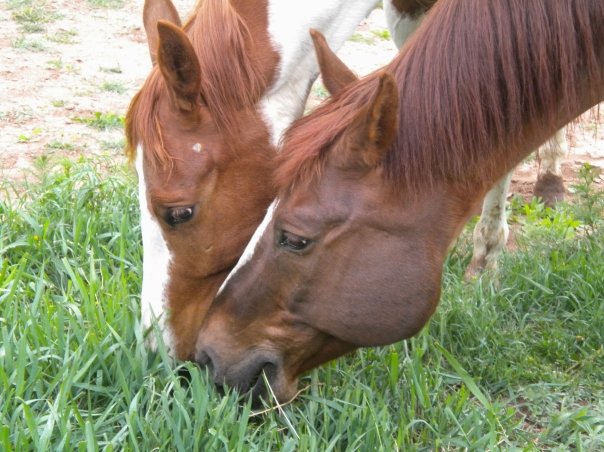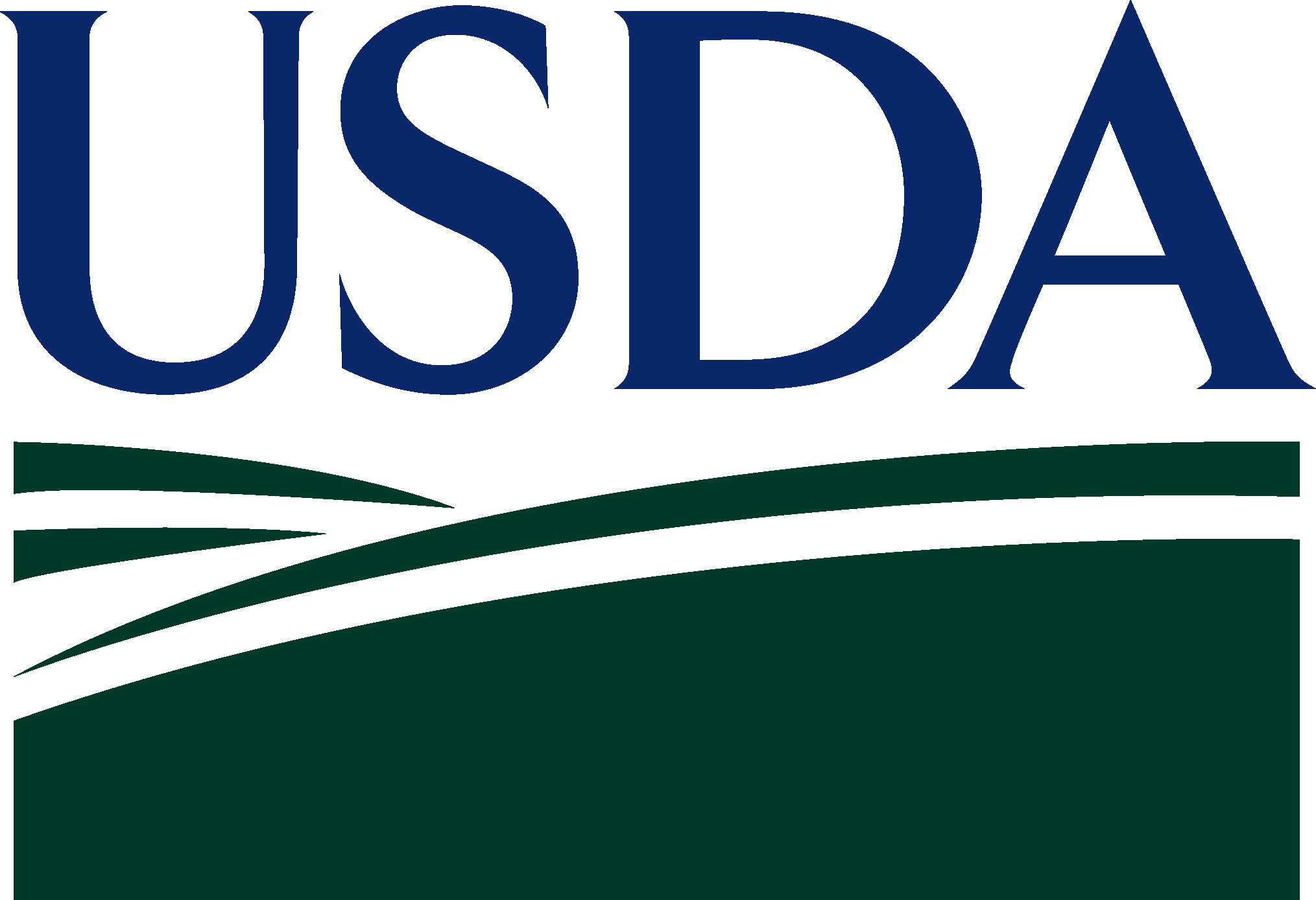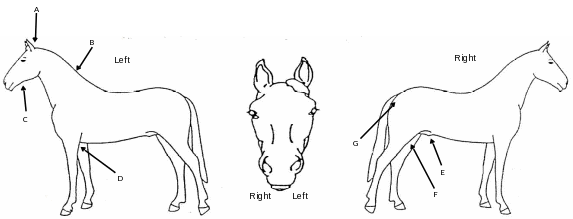NAHMS 337 Tick Evaluation and Data Collection Record
Equine 2015 Study
NAHMS 337 Equine Tick CER_omb
Equine 2015 Study
OMB: 0579-0269
NAHMS
Equine 2015
Tick
Evaluation and
Data
Collection Record
National
Animal Health Monitoring System
2150
Centre Ave, Bldg B
Fort
Collins, CO 80526
Form
Approved
OMB
Number 0579-0269
EXP.
DATE: XX/20XX



Animal and Plant
Health Inspection
Service
Veterinary Services
Farm ID: (6 digits) |
Kit #: |
Collector name and phone number: |
Date: (mm/dd/yy) |
|
|
|
|
Tick Exam and Collection Instructions
Equids to sample: Sample up to 10 equids on the operation. Select equids that have the greatest chance of tick exposure—
i.e., equids that have access to grass or foliage even if the grass/foliage is located only at the edge(s) of a dirt pen or paddock.
Equids that are not turned out in a pasture or have access to other foliage have a low risk of tick exposure.
Kits: Each kit includes one glass tube prefilled with 70% ethanol and two tick collection tools: one Tick Key and one Pro tick.
Perform a full-body scratch inspection on the animal with your fingers to locate ticks. Record the location and number of ticks according to the diagram provided on the data collection form. For example, 20 ticks located by the left ear is entered as A-left (20) on the data collection form. Approximately 200 ticks on the right side of the tail is entered as G-right (200).
Use one of the two tick removal tools (instructions are included with each tool) to remove the tick and place it in the glass tube (prefilled with 70% ethanol).
From each equid where ticks are observed, collect a representative sample of ticks from each location on that equid. All collected ticks for the operation should be placed in the same tube.
Ship the tube along with the yellow copy of the Data Collection Record to NVSL, using the enclosed FedEx shipping label.
Send the original white copy of the Data Collection Record to your NAHMS Coordinator within 3 business days.

Tick Location Diagram
These are common locations of ticks on a horse or other equid. Please use the codes below to indicate on the Data Collection form where ticks are observed on each animal. Specify which side of the animal the ticks are located. If ticks are observed in a location not specified by the codes, mark H. and specify the location and side of the animal.
Ears
Mane
Intermandibular space
Girth or axilla
Sheath or udder
Between hindquarters/thighs
Tail head or under tail
Face
Other (specify on Data Collection Record)

H
Reference Codes for Tick Collection
Gender codes |
||
1 = Intact male (stallion or colt) |
3 = Nonpregnant female (mare or filly) |
5 = Spayed female |
2 = Castrated male (gelding) |
4 = Pregnant female |
|
|
||
Primary use codes |
||
1 = Pleasure |
3 = Breeding |
5 = Farm or ranch work |
2 = Show or competition (not betting) |
4 = Racing |
6 = Other (specify in column) |
|
||
Equine type |
||
1 = Horse |
3 = Donkey |
5 = Miniature |
2 = Mule |
4 = Pony |
6 = Other |
|
||
Breed codes |
||
1 = Appaloosa |
6 = Mustang |
11 = Tennessee Walker |
2 = Arabian |
7 = Paint |
12 = Thoroughbred |
3 = Draft breed |
8 = Quarter horse |
13 = Warmblood breeds |
4 = Miniature horse |
9 = Saddlebred |
14
= Other registered breed |
5 = Morgan |
10 = Standardbred |
15
= Other nonregistered breed |
|
||
Color (color of majority of body) |
||
1 = Red |
4 = White |
7 = Red roan |
2 = Brown |
5 = Black |
8 = Blue roan |
3 = Gray |
6 = Tan/Buckskin /Palomino |
9 = Other (specify) |
Equid # |
Equid name or unique ID |
Age
(months
|
Gender (See codes) |
Primary use (see codes) |
Equid Type: (See codes) |
Breed (See codes) |
Coat color (see codes) |
In
the past (Yes/No) |
Treated for ticks in previous 30 days? (Yes/No) |
Code for product used to treat for ticks |
Location(s) of ticks Indicate all locations where ticks were found Code for area of body, side (left or right), approximate number of ticks observed (see horse diagram) |
Ex |
Daisy |
2yr |
3 |
1 |
1 |
2 |
2 |
Yes |
Yes |
4 |
A-left
(5), D-right (50), |
1 |
|
___ mo ___ yr |
|
|
|
|
|
|
|
|
|
2 |
|
___ mo ___ yr |
|
|
|
|
|
|
|
|
|
3 |
|
___ mo ___ yr |
|
|
|
|
|
|
|
|
|
4 |
|
___ mo ___ yr |
|
|
|
|
|
|
|
|
|
5 |
|
___ mo ___ yr |
|
|
|
|
|
|
|
|
|
6 |
|
___ mo ___ yr |
|
|
|
|
|
|
|
|
|
7 |
|
___ mo ___ yr |
|
|
|
|
|
|
|
|
|
8 |
|
___ mo ___ yr |
|
|
|
|
|
|
|
|
|
9 |
|
___ mo ___ yr |
|
|
|
|
|
|
|
|
|
10 |
|
___ mo ___ yr |
|
|
|
|
|
|
|
|
|
Tick Prevention/Treatment Product List
| File Type | application/vnd.openxmlformats-officedocument.wordprocessingml.document |
| File Title | pasture.PDF |
| Author | Unknown |
| File Modified | 0000-00-00 |
| File Created | 2021-01-26 |
© 2026 OMB.report | Privacy Policy